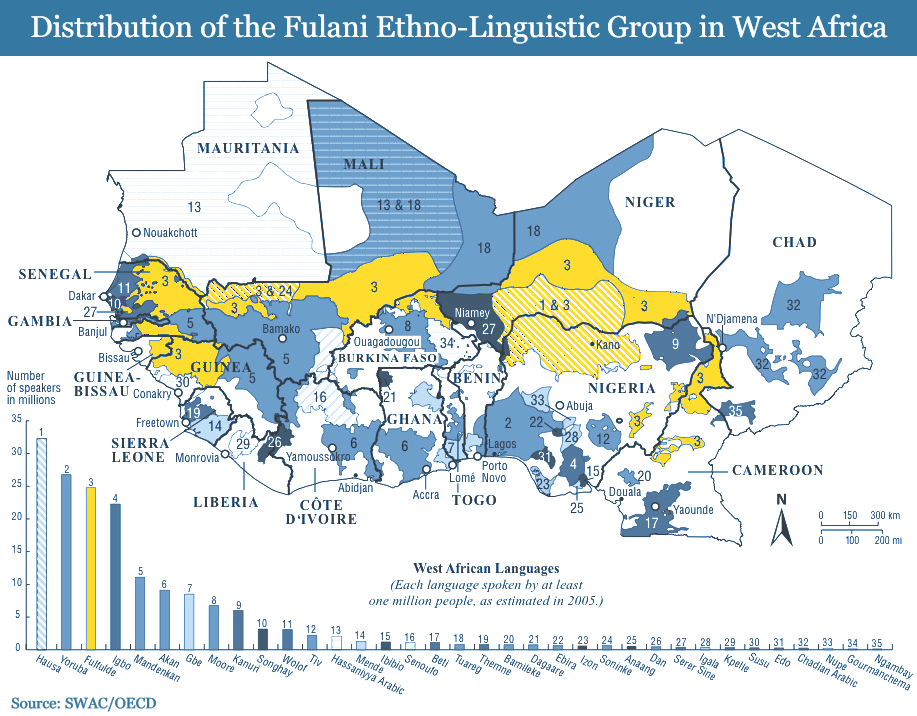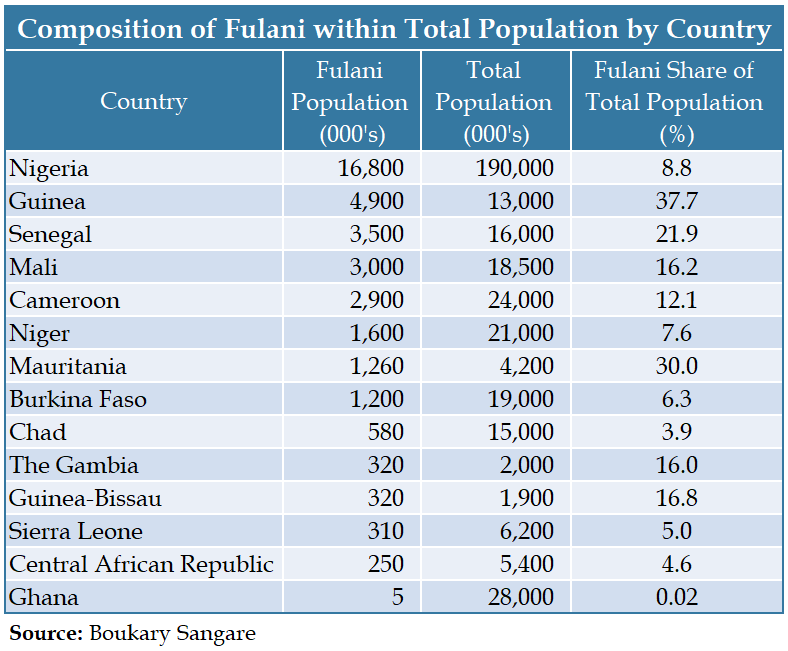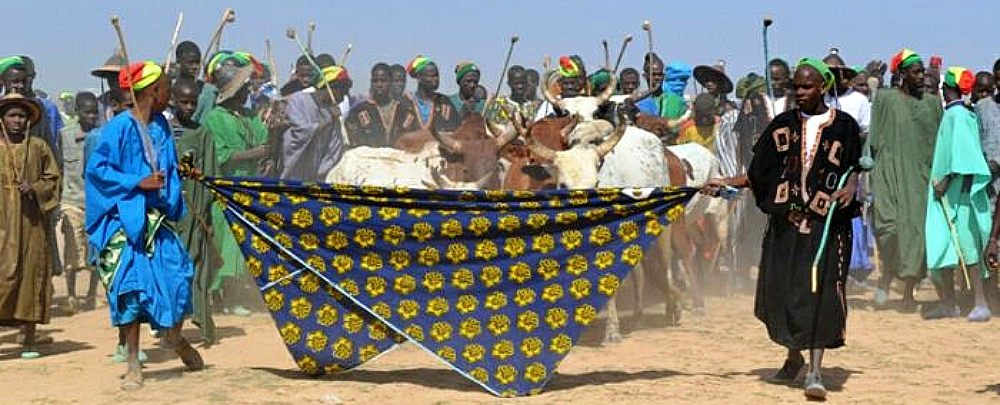
Fulani shepherds celebrating le retour du yaaral de Diafarabé in central Mali near the Niger Delta. This celebration was classified by UNESCO as an intangible cultural heritage in 2005, but has been prohibited in the Delta since 2015. (Photo: Modibo Ghaly Cissé)
Daily life in the Sahel has been punctuated by a rapid rise in violent attacks from militant Islamist groups in recent years. Thousands have been killed and millions displaced since a separatist-turned-militant Islamist conflict erupted in 2012. The disproportionate presence of Fulani among the militant Islamist groups that are responsible for this violence in northern Burkina Faso, western Niger, and northern and central Mali has shattered intercommunal trust and the social harmony for which the region was previously known. This is so despite only a small minority of Fulani having taken up arms and members of other identity groups being present within the extremists’ ranks.
The spread of insecurity in the Sahel has led some observers to simplify the current situation as a “Fulani jihad” or a “Fulani rebellion.” They point to insurgent groups such as Front de Libération du Macina (FLM) led by Fulani preacher Amadou Koufa in central Mali, Ansaroul Islam founded by Fulani Ibrahim Malam Dicko, the Fulani Tolebe fighters from Niger who fought with the Movement for Unity and Jihad in West Africa (MUJAO) and who are now mixed within the ranks of the Islamic State of the Greater Sahara, and even Ansar Dine and other affiliates of Jama’at Nusrat al Islam wal Muslimin (JNIM) that contain groups of Fulani fighters.
Fulani stigmatization, in turn, has precipitated the targeting of Fulani communities by neighboring community militias such as the Dozo in central Mali and the Koglweogo in Burkina Faso. These militias have mounted attacks killing hundreds of Fulani civilians that have spurred further recruitment for militant Islamist groups, propelling a deadly revenge-reprisal cycle.
Fulani leaders, thus, are faced with the dual challenge of defusing the group-wide stigmatization while stemming further recruitment from militant groups.
The Causes and Consequences of Fulani Enrollment in Jihadism
Fulani pastoralists have joined militant Islamist groups in the Sahel for reasons that are as varied as they are numerous. These nomadic shepherds have taken up arms to fight against the abuses of some government authorities who have sought to extract arbitrary fees. In other cases, some Fulani have joined militant Islamist groups simply for economic gain after livestock epidemics such as cattle plague and bovine pleuropneumonia or severe droughts decimated their herds and impoverished their families.
As Islamist and separatist Tuareg groups advanced their 2012 rebellion in northern Mali, they made many enemies besides the Malian armed forces. Their fighters looted the businesses of Arab smugglers and raided cattle from Fulani shepherds. These actions prompted Arab merchants to form and Fulani herders to join MUJAO in 2012 as a means of defending themselves against the growing power of the Tuareg Azawad National Liberation Movement (MNLA) and its Islamist allies al Qaeda in the Islamic Maghreb (AQIM) and Ansar Dine.
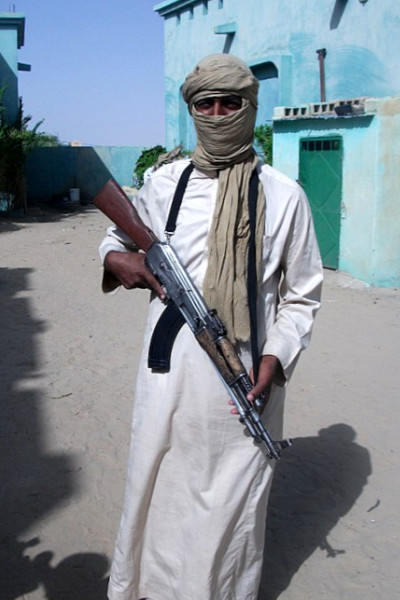
A Tuareg member of AQIM. (Photo: Magharebia)
Similar reactions by Fulani communities have continued in the face of persistent violence. In March 2013, a Tuareg battalion killed 21 Fulani livestock merchants and threw their corpses in the wells of the village of Doungoura located in the Mopti Region of central Mali. Subsequent efforts by pastoralist leaders to engage local officials and national authorities to address the security concerns of pastoralists were ineffective. It subsequently took the Malian gendarmerie 2 years to come to Doungoura to investigate. This strengthened the perception that Malian authorities and the international community remained indifferent toward Fulani pastoralists, fostering a sentiment of injustice.
Seeking to exploit this perception, in 2013, Hamma Founè Diallo, the future leader of the Mouvement pour la défense de la patrie (MDP), called on Fulani pastoralists to join in rebellion against the Malian state, but not to side with the jihadists. His calls were mostly unheeded, however, because many Fulani pastoralists had already been influenced by the ideas of Amadou Koufa, leader of FLM, who was preaching jihad throughout the region by this time. Koufa’s ideas found fertile ground among Fulani herders who, tired of perceived official indifference and abuses, were primed for a social revolution cloaked in religious inspiration.
The desire for social change and protection has resulted in the dominant presence of Fulani among militant Islamist groups in the Sahel. This, in turn, has been a principal factor in the increase in intercommunal clashes. Violence between communities has occurred in the form of unprecedented attacks on Fulani villages and camps, following the collaboration of the armed forces with non-Fulani militias. Used by the military as reconnaissance scouts, these militias have at times found themselves in the crosshairs of the jihadists. In short, ethnic identity has become highly polarized and sparked bouts of intercommunal violence.
The massacres of Fulani have, in turn, spurred more recruitment for militant Islamist groups. In a 2019 recording, Amadou Koufa stated ironically that Fulani herders designated as jihadists by the expression yimbe laddè (literally “bush men” in Fulani language, Fulfuldè), would have had the bush as their home regardless of whether they joined the jihad, since they would have been hunted down like game by militias and soldiers had they not joined. Using this rhetoric to appeal to Fulani herders, extremists offer their protection to Fulani communities and to those displaced by violence who desire to avenge themselves.
The Voice of Fulani Leaders in the Face of Stigmatization
The radicalization of certain members of the Fulani community and the subsequent stigmatization and abuses that followed have mobilized Fulani leaders to take various actions. Some leaders have attempted to organize meetings, press conferences, and visits to displacement camps to facilitate intercommunal reconciliation. They have worked diligently to remove their community from widespread stigmatization by denouncing and condemning attacks, as well as the abuses their communities have suffered. Similarly, they have supported the displaced and brought aid to the wounded.
“Fulani leaders have taken steps to distance themselves from violent groups.”
Fulani leaders also have taken steps to distance themselves from violent groups such as Alliance nationale pour la sauvegarde de l’identité peule et la restauration de la justice (ANSIRPJ). These leaders vehemently denounced the attack on Malian armed forces at Nampala in July 2016 led by ANSIRPJ. Across local and national airwaves, they showed that the head of ANSIRPJ, the Tuareg Oumar Aldjana, did not represent the Pulaaku (“Fulani society” in Fulfuldè) and should not be seen as speaking for this community.
These efforts at reconciliation have not been uniformly welcomed by their communities. While some view these messages of non-violence very positively, others remain critical. These critics feel Fulani leaders did nothing at the height of their power to improve the lives of poor Fulani pastoralists. Rising to defend the cause of the Fulani and appealing for nonviolence now, after conflict has already erupted, has done little to sway the opinions of many pastoralists.
Instead, in some cases, these calls have sharpened grievances. Some pastoralists speak scornfully of “sons of farmers” in ministerial posts having responsibility for “every inch of rural land” (implying the system favors farmers’ interests over those of pastoralists). This rhetoric has fanned the flames of old grudges between different members of the Fulani community itself. For instance, many Fulani pastoralists are wary of negotiations with the government since the Fulani feel they never received the reparations promised them in deals struck back in the 1990s.
Fulani Leaders Facing Reprisals from Militant Islamist Groups
An opportunity was lost to squelch the militant Islamist groups’ threat in 2014-2015 when these groups were just gaining momentum. However, local and national officials overlooked the threats posed by these extremist groups in central Mali and northern Burkina Faso. Those groups espousing violent extremist views, particularly FLM and Ansaroul Islam, took advantage of this space to reach out to villages spreading their radical message. They also made impromptu visits to mosques where they would preach violent jihad.
Their sermons and rhetoric were tailor-made for local recruitment, denouncing abuses suffered by local communities at the hands of government authorities and the monetization of local pasture access. They also criticized local Fulani chiefs known as diowros, other local leaders, the moderate forms of Islam commonly practiced in the region, the large families of marabouts, and democracy. Ultimately, militant Islamist groups were able to recruit from those within the Fulani community who harbored these grievances and were less connected to villages throughout the region, notably pastoralists.
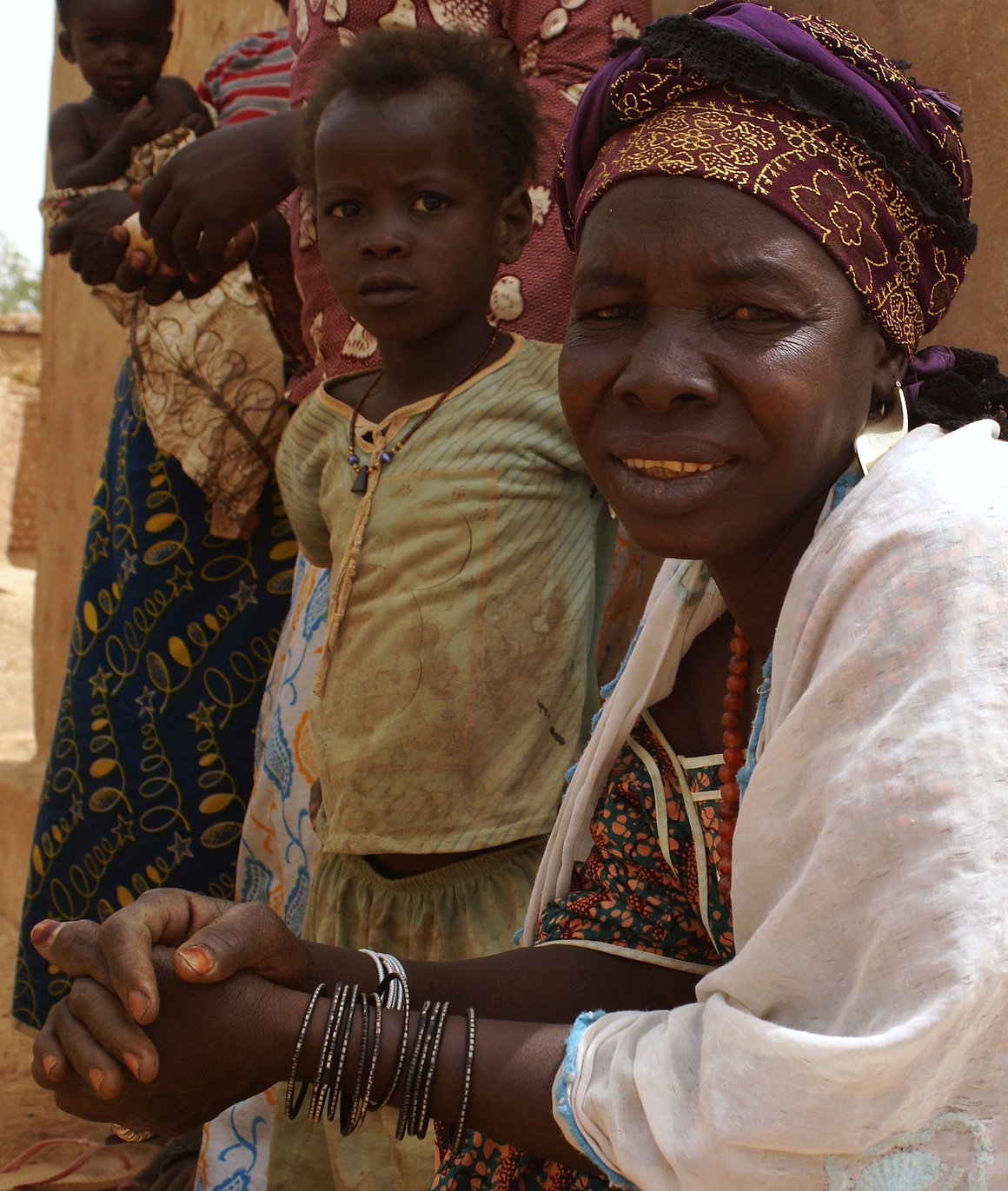
A Fulani woman in Burkina Faso. (Photo: Guillaume Colin & Pauline Penot)
The resulting violence turned large segments of the local population against the militant Islamist groups. Some local religious authorities have used every means available to them to prevent the arrival of militant Islamist groups in their respective territories using collective prayers and sermons to speak out against violent extremism.
Some local leaders have even solicited the presence of Malian armed forces in their villages attracting the anger of the jihadists who consequently began targeting these Fulani leaders in assassinations. Those who refuse to support militant Islamist groups face the threat of death and the extortion of their livestock.
Despite these threats, the jihadist discourse, which hinges on a characterization of the Malian state as the embodiment of injustice, has not been able to mobilize large numbers of Fulani. To the extent that they do cooperate with the extremist groups, it is often out of fear of reprisal rather than conviction. By and large, however, most traditional chiefs and ordinary Fulani have not been convinced by militant Islamists groups’ goals. Rather, Fulani leaders have for the most part distanced themselves from the ideology of militant Islamists who call for a return to Islamic theocracy.
The diversity of the Fulani community, comprised of numerous subgroups found throughout the Sahel, presents additional challenges for largescale recruitment. The extensive livestock-rearing and herding that long typified the Fulani community no longer characterize the entire Pulaaku, as fewer and fewer practice this livelihood. Tellingly, those who continue to rely on this vulnerable way of life have tended to be those most susceptible to extremist discourse, whereas other members of the Fulani population in the region have largely rejected violent extremism.
For still other Fulani, religious motives serve as the basis for their rejection of violent jihad. Most Muslim Fulani in central Mali and the wider Sahel follow Maliki legal traditions and view Wahhabism as extreme and antithetical to their beliefs. Militant Islamist groups promote the legalistic and bellicose version of Islam upheld by Wahhabi practices, which is incongruent with the beliefs of most Muslims in the region. This is why as far back as 2012 when the insurgency began, some rebel fighters rejected this ideology.
Reflecting this lack of support, in a recording from 2015, an unidentified extremist preacher was recorded saying that he deplored “the absence of the great masters of the Quran [well-known imams] and rich pastoralists in their ranks.” In another recording from 2016, Amadou Koufa laments that he is “still waiting for descendants of the great marabout families to commit to the jihad.” Such statements underscore that many Fulani reject the militant cause, even if Fulani constitute a significant faction within the jihadist movement in the Sahel.
Responding to the Stigmatization of the Pulaaku
Traditional leaders within the Pulaaku and those of other ethnic communities need to shake off their inward turn toward ethnic identity and speak frankly to one another as compatriots. These leaders must realize there is nothing to gain from blaming someone else for their predicament. Communal leaders need to step back from the appeal of reactionary rhetoric that provokes hate from other groups. Instead they must express the Fulani communities’ goals in terms of hope, peace, and unity. Divisive rhetoric should be condemned and denounced, just as calls for violence have been.
“The role model of soldier-educator in the defense and security forces has been nearly forgotten at a time when there is perhaps no greater need.”
Governments in the region need to hold their armed forces accountable and push them to operate in strict accordance with the law, lest they foment perceptions of abuse of power. Similarly, governments must hold militias accountable for their involvement in communal clashes, whether they are working in conjunction with the armed forces or independently. Soldiers have the right to ensure security, but they also have other roles to uphold. Indeed they should strive to educate local populations. The role model of soldier-educator in the defense and security forces has been nearly forgotten at a time when there is perhaps no greater need.
Local and national governments must use all their channels to put an end to the stigmatization of the Fulani. One option may be to pursue policies similar to what was done by the administration of Amadou Toumani Touré in Mali to address the stigmatization of the Tuareg following rebellions in the 1990s and 2000s. This administration developed simple skits in local languages that were performed throughout the region to explain to local communities that not every Tuareg was a rebel. Similar skits might be developed to explain that not every Fulani is a jihadist.
International partners should take into account the voices of local populations—not only political elites—and create the conditions for an inclusive dialogue capable of resulting in a durable peace. They need to prioritize the words of those communities that have fallen victim to this crisis. They must also help to ensure that these voices are protected from retaliation by militant Islamist groups.
Modibo Ghaly Cissé is a doctoral student in anthropology at the Center of African Studies at Leiden University (the Netherlands). His research focuses on the trajectories of radicalization of nomadic Fulani pastoralists in the Sahel, specifically in central Mali.
Additional Resources
- Laurence-Aïda Ammour, “How Violent Extremist Groups Exploit Intercommunal Conflicts in the Sahel,” Spotlight, Africa Center for Strategic Studies, February 26, 2020.
- Africa Center for Strategic Studies, “Threat from African Militant Islamist Groups Expanding, Diversifying,” Infographic, January 18, 2020.
- Pauline Le Roux, “Responding to the Rise in Violent Extremism in the Sahel,” Africa Security Brief No. 36, Africa Center for Strategic Studies, December 2, 2019.
- Africa Center for Strategic Studies, “Strategies for Peace and Security in the Sahel,” Video, September 27, 2019.
- Africa Center for Strategic Studies, “Mitigating Farmer-Herder Violence in Mali,” Spotlight, August 8, 2019.
- Kaley Fulton and Benjamin P. Nickels, “Africa’s Pastoralists: A New Battleground for Terrorism,” Spotlight, Africa Center for Strategic Studies, January 11, 2017.
More on: Countering Violent Extremism AQIM Sahel


